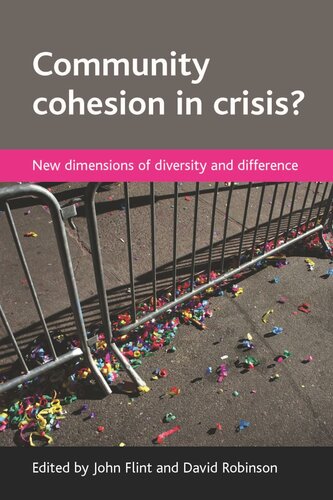

Most ebook files are in PDF format, so you can easily read them using various software such as Foxit Reader or directly on the Google Chrome browser.
Some ebook files are released by publishers in other formats such as .awz, .mobi, .epub, .fb2, etc. You may need to install specific software to read these formats on mobile/PC, such as Calibre.
Please read the tutorial at this link: https://ebookbell.com/faq
We offer FREE conversion to the popular formats you request; however, this may take some time. Therefore, right after payment, please email us, and we will try to provide the service as quickly as possible.
For some exceptional file formats or broken links (if any), please refrain from opening any disputes. Instead, email us first, and we will try to assist within a maximum of 6 hours.
EbookBell Team

4.1
40 reviewsThere is an alleged crisis of cohesion in the UK, manifested in debates about identity and 'Britishness', the breakdown of social connections along the fault lines of geography, ethnicity, faith, income and age, and the fragile relationship between citizen and state. This book examines how these new dimensions of diversity and difference, so often debated in the national context, are emerging at the neighbourhood level. Contributors from a range of disciplinary backgrounds critically assess, and go beyond the limits of, contemporary policy discourses on 'community cohesion' to explore the dynamics of diversity and cohesion within neighbourhoods and to identify new dimensions of disconnection between and within neighbourhoods. The chapters provide theoretically informed critiques of the policy responses of public, private, voluntary and community organisations and present a wealth of new empirical research evidence about the dynamics of cohesion in UK neighbourhoods. Topics covered include new immigration, religion and social capital, faith schools, labour and housing market disconnections, neighbourhood territoriality, information technology and neighbourhood construction, and gated communities. Community cohesion in crisis? will be of interest to academics, policy makers, practitioners and students in the fields of human and urban geography, urban studies, sociology, politics, governance, social policy, criminology and housing studies.